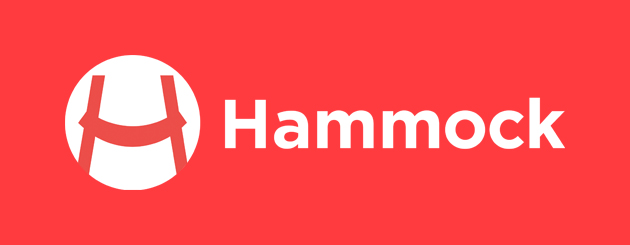



By John Lavey, President
In June, Forrester released its 2022 Customer Experience (CX) Index. Forrester revealed that CX quality fell for 19% of brands tracked across 13 industries in 2022. It was the largest one-year drop in the history of the survey.
What happened? Forrester suggested a “waning attention on customers, even though customers expect more from digital and hybrid experiences.”
Healthcare can’t afford to drop its attention to customers. In September 2021, Press Ganey—a renowned leader in patient, member, employee and consumer experience across the healthcare ecosystem—surveyed more than 1,000 adults to evaluate consumer preferences and expectations for healthcare. What Press Ganey found and published in its 2021 Consumer Experience Trends in Healthcare Report echoes what is true in other industries: A digital-first mindset is the ticket to a positive consumer experience.
So, how can digital content help? For starters, organizations should focus their attention on creating trustworthy content.
According to Press Ganey, 51.1% of patients turn to the web when choosing a new primary care provider (PCP). Even more specifically, consumers rely on search engines (22%) almost as much as they do doctor referrals (24%) to find a PCP.
When considering content, think about these areas:
How is your organization using digital content to improve the consumer experience?
About Hammock Healthcare Idea Email | This post is part of Hammock’s award-winning Idea Email series. Idea Emails are sent every other week and share one insightful marketing idea. Idea Email comes in two flavors: Original and Healthcare. To subscribe to the original Idea Email (general marketing ideas), click here. To subscribe to the Healthcare Idea Email (healthcare marketing ideas), click here.

By John Lavey, President
We view helpful content as one of the highest forms of marketing. Helpful content is superior marketing to content that hypes a solution.
Sometimes the most helpful kind of content, particularly for B2B marketing, is educating your customers and creating resources that they can use to do their jobs more effectively.
Helping educate your audience to help them be better at their jobs can take many forms. Here are three ideas:
User conferences
Many of our clients host user conferences, assembling a curriculum to introduce customers to the latest and best ideas about their job. These two-day or three-day events are big lifts for companies to put on, and they can be expensive, but they are viewed positively by customers.
Client universities
Some clients we’ve worked with have adopted the idea of themselves as a university, continually teaching their customers how to be better at their job. When the customers are a channel seller of their solution, it’s not only helpful but also savvy. The university model differs from the user conference model to the extent that the teaching and the messaging last beyond the three-day span. The investment in that kind of marketing spans year round.
Library of resources
This kind of content marketing offers clients a library of resources to help them do their jobs. Providing presentation decks, e-books, videos and more, marked with their branding so they can use them in their marketing or sales to clients, is good content marketing.
How can you help teach your client and sharpen your content marketing?
About Hammock Healthcare Idea Email | This post is part of Hammock’s award-winning Idea Email series. Idea Emails are sent every other week and share one insightful marketing idea. Idea Email comes in two flavors: Original and Healthcare. To subscribe to the original Idea Email (general marketing ideas), click here. To subscribe to the Healthcare Idea Email (healthcare marketing ideas), click here.

Every healthcare organization has stories to tell, and case studies based on success stories can be a powerful form of content marketing. A thoughtful and well-executed case study can:
Unfortunately, many organizations find it daunting to convert these stories into studies that produce results. They struggle with finding the right client or story to feature, they overcomplicate the story by getting bogged down in minutiae that nobody really cares about, or they fail to make the story relevant to a larger audience.
At Hammock, our decades of experience in helping healthcare industry clients tout their successes have taught us some essential lessons about what makes a great case study:
We would welcome the opportunity to talk with you about how we can help you turn your success stories into case studies that help you build on those recent successes.
Image: Getty Images
About Hammock Healthcare Idea Email | This post is part of Hammock’s award-winning Idea Email series. Idea Emails are sent every other week and share one insightful marketing idea. Idea Email comes in two flavors: Original and Healthcare. To subscribe to the original Idea Email (general marketing ideas), click here. To subscribe to the Healthcare Idea Email (healthcare marketing ideas), click here.
We are pleased to announce that two of Hammock’s clients won awards during the 2022 APEX Awards competition. The APEX Awards are based on excellence in graphic design, editorial content, and the ability to achieve overall communications excellence. APEX Grand Awards honor the outstanding works in each main category, while APEX Awards of Excellence recognize exceptional entries in each of the individual subcategories.
OptimizeRx, a digital health company that is focused on bringing life sciences support to patients and providers, received the Grand Award in Design & Illustration for an infographic about multiple sclerosis.
The infographic was part of a campaign that OptimizeRx created to communicate better solutions for pharmaceutical companies that want to generate awareness of, adherence to and initiation with specialized drugs and therapies for hard-to-reach multiple sclerosis patients. OptimizeRx shared its research on this topic in a series of four blog posts, along with an engaging infographic that worked on its own but combined into one larger infographic that told a complete story. The graphic designer was able to leverage the “X” in the company’s branding to execute a final compelling infographic that supported the brand story.
Hammock’s longtime client the Daughters of the American Revolution was also a winner and received two APEX Awards of Excellence. Hammock has partnered with the DAR for more than a decade to publish American Spirit magazine—and we’re excited to see them win once again.
The March/April 2021 issue of American Spirit magazine was recognized in the “Print Magazines, Journals & Tabloids” category. This issue of American Spirit served as the 11th annual Women’s History Month issue, and it featured articles on salons in Colonial America; Susanna Rowson, America’s first bestselling author; and how coverture laws affected early American women.
In the feature writing category, longtime Hammock writer Emily McMackin Dye was recognized with an Award of Excellence for her story “Deputy Husbands Kept the Home Fires Burning.” While their husbands were away at war or at sea, women kept the home fires burning, often raising and educating their children, managing finances, tending to the farms and livestock, and protecting their families from danger. Emily highlighted how the Revolutionary War created more opportunities for women such as Abigail Adams, Catherine Schuyler, Mary Bartlett and others to step outside traditional roles of the era and take charge of their households.

By John Lavey, President
With the labor market as tight as it is, it has never been harder to attract and retain talent. If your company is like some, the move to remote work means that you are no longer just competing with companies in your geographic area; you are competing against the rest of the world for the best people in your industry.
Finding ways to stand out from the competition and truly engage potential candidates for hire is hard to do, but using video to assist your recruiting efforts is a dynamic way to meet that challenge.
Short videos that tell authentic stories about who you are and why someone would want to work with you right now can cut through the details you will likely have to share in a job posting.
Here are some of the tips for what you will want in an effective video to accompany your recruitment postings:
Short—The most popular format for viewing videos right now is on TikTok, and the sweet spot for length of video there is 7 seconds to 15 seconds. Chances are you can’t communicate the value of a role in a TikTok video, but you should aim for brevity. There are industry-specific and platform-specific standards, but getting a video to 1 minute is a good goal.
Authentic—Letting your passion come through about your mission as an organization and why you care about what you do is important. It’s not so much what you say as how you say it. That energy is contagious.
Clear—Get to the point quickly, or create a clear call to action about what they can do next if interested. The platforms themselves can provide an assist here. But if it’s important, for example, to make it clear whether you are open to remote work, say it out loud.
Storytelling content is a critical part of every stakeholder journey, not just your customer journeys. Think about how you can help your prospective employees at each stage of their search. Video can help.
Image: Getty Images
About Hammock Healthcare Idea Email | This post is part of Hammock’s award-winning Idea Email series. Idea Emails are sent every other week and share one insightful marketing idea. Idea Email comes in two flavors: Original and Healthcare. To subscribe to the original Idea Email (general marketing ideas), click here. To subscribe to the Healthcare Idea Email (healthcare marketing ideas), click here.

We often take it for granted that a content calendar is part of the value we provide healthcare clients, but being able to provide timely, consistent, relevant and highly engaging content requires planning, a structured slate of content and an accompanying schedule.
For social media, blog posts and content campaigns, having a content calendar helps you avoid duplicating content, saves you from last-minute (poor) planning, and helps you visualize your content strategy well into the future.
Our approach to creating content for healthcare clients means creating content in advance while allowing room for timely opportunities to respond to something newsworthy that captures the attention of the audience.
Our experience over time is clients need real-time visibility (or close to that) into the status of projects in the works. So, creating a schedule in a shared, collaborative platform can be the basis for a good workflow.
The calendar, combined with status updates and performance reporting, feeds best practices and a great partnership.
Most companies can’t create content effectively on their own. It’s too specialized and expensive to create content across media types, distribute across multiple channels, and measure to determine success.
If you are struggling to share the great stories you have to tell, consider what it will require to stay on track. A content calendar is a wonderful start.
Image: Getty Images
About Hammock Healthcare Idea Email | This post is part of Hammock’s award-winning Idea Email series. Idea Emails are sent every other week and share one insightful marketing idea. Idea Email comes in two flavors: Original and Healthcare. To subscribe to the original Idea Email (general marketing ideas), click here. To subscribe to the Healthcare Idea Email (healthcare marketing ideas), click here.

By Megan Hamby, Editorial Director
Recently, one of our healthcare clients reached out and asked for our help brainstorming some new ideas. She had a white paper that her team had developed, but she wanted to find a few creative ways to repurpose the information into different forms of content.
I got to work immediately, highlighting sections of the 15-page white paper that I thought could be broken down into shorter e-books, strategy guides, tip sheets, infographics and more. I quickly realized that the white paper was chock full of insightful and helpful information that could be broken down into easier-to-digest pieces of content.
If you have a white paper, blog post, infographic or other piece of content that needs a new lease on life, consider repurposing (or upcycling) it. Turn a series of blog posts into a guide; turn an infographic into a video; or use testimonials published on your site on your social media. The possibilities are endless. Repurposing your content has a number of benefits, including:
> Reaching a new audience. Everyone learns differently and consumes information differently. Repurposing your content in a new format—such as an infographic, a video or even a podcast—can reach an audience segment that otherwise might not have found it.
> Boosting traffic. The main goal of repurposing content is to drive more traffic to your site—and improve conversion rates. One study found that organic search still holds the majority share among traffic sources. This means that publishing your existing content in new formats can boost traffic and drive conversions.
> Building credibility and strengthening messaging. Google likes credible, authoritative websites. Repurposing your content in new formats can help build credibility with Google because you have more content about a specific topic on your site. Plus, it strengthens your messaging, positioning you or your organization as a thought leader.
Ready to upcycle your existing content in new, fresh ways? Let us help.
Image: Getty Images
About Hammock Healthcare Idea Email | This post is part of Hammock’s award-winning Idea Email series. Idea Emails are sent every other week and share one insightful marketing idea. Idea Email comes in two flavors: Original and Healthcare. To subscribe to the original Idea Email (general marketing ideas), click here. To subscribe to the Healthcare Idea Email (healthcare marketing ideas), click here.

By Megan Hamby, Editorial Director
At Hammock, we like to think of ourselves as a 31-year-old startup organization. Although we have a long history of serving clients and delivering powerful content marketing solutions, we strive to be “disruptors” in the industry—changing the ways organizations think about content.
This philosophy comes from Hammock’s founder, Rex Hammock, who announced his retirement from Hammock on April 6, 2022. More than 30 years ago, Rex saw an opportunity for brands to go direct to customers—initially with print magazines. When he started Hammock Inc. in 1991, it was a custom publishing agency, utilizing the then novel technology of desktop publishing to create creative media that was every bit as good as what was on the newsstands. Today, Hammock Inc. is a unique agency that creates content to be deployed across a diverse media landscape—and we owe that reputation to Rex’s strategic vision and leadership over the past 31 years.
Rex was a pioneer in the content marketing industry. Prior to founding Hammock, he was the founder/partner of a public relations subsidiary of one of the largest regional advertising agencies in the South, a congressional speechwriter and a press secretary. In 1999, he co-founded the national trade association that today is called the Custom Content Council. That same year, he started SmallBusiness.com, a site dedicated to helping small-business owners and managers get the right information for important decisions. Rex was a trailblazer in blogging—in 2004, he became the first person to blog a meeting with a president, when he met with President George W. Bush.
Most importantly, Rex created a positive company culture at Hammock—one that values teamwork, engagement, communication and collaboration. In an industry where people change jobs every few years, Hammock’s employees have stayed on board—with some celebrating 25th anniversaries. He has cheered his employees on in professional and personal achievements, celebrated marriages and growing families, and made us laugh more times than we can count.
On April 6, 2022, Rex and John Lavey, incoming CEO, announced the completion of a management buyout. The transaction is part of a long-term succession plan that Rex and John developed together over many years—and it allows Hammock Inc. to continue successfully executing their strategic vision, aligning it with the market’s need for effective and innovative content marketing solutions. Although Rex will no longer be driving Hammock, his legacy lives on in the way we approach content marketing and deliver the highest-quality service to our clients.
This post is part of Hammock’s award-winning Idea Email series. Idea Emails are sent every other week and share one insightful marketing idea. Idea Email comes in two flavors: Original and Healthcare. To subscribe to the original Idea Email (general marketing ideas), click here. To subscribe to the Healthcare Idea Email (healthcare marketing ideas), click here.
Transaction strengthens Hammock’s strategic focus on delivering innovative content marketing solutions for industry-leading clients
Nashville, TN (April 27, 2022) – Hammock Inc, a leading provider of content marketing solutions for businesses and association organizations across the U.S., announced today the completion of its management buyout.
The buyout was led by John Lavey, who has been employed at Hammock since 1996, most recently as president and chief operating officer. Exiting founder and CEO Rex Hammock formed the company in 1991. The transaction represents the culmination of an ownership and management succession plan that was developed over many years.
The new ownership structure will completely align the executive management team’s strategic vision with the market’s need for effective and innovative content market solutions leveraged across a rapidly evolving media landscape.
“Rex Hammock started this business 31 years ago and was a pioneer in the U.S. at building out what we know today as content marketing,” Lavey said. “Rex saw the opportunity for brands to go direct to customers, initially with print magazines, and today, with a whole host of digital media assets, to build loyalty, support branding and drive leads.
“Hammock has become a unique publishing platform that delivers valuable solutions to a marquee client base. Now, with 100% ownership by a committed management team, Hammock has a renewed energy to continue developing the most effective and powerful content marketing solutions to help our clients succeed and grow.”
Hammock is investing in new talent acquisition to provide clients with the latest needs in media creation and the measurement of ROI around investments in content marketing.
Terms of the transaction were not disclosed.
John Lavey and management were represented in the transaction by Silvermark Partners LLC as financial advisor and Hughey Business Law, PLLC as counsel. Rex Hammock was represented by Wood Stabell Law Group, PLLC as counsel.

By: Steve Sullivan, Sales Director
Image: Getty Images
About Hammock Healthcare Idea Email | This post is part of Hammock’s award-winning Idea Email series. Idea Emails are sent every other week and share one insightful marketing idea. Idea Email comes in two flavors: Original and Healthcare. To subscribe to the original Idea Email (general marketing ideas), click here. To subscribe to the Healthcare Idea Email (healthcare marketing ideas), click here.